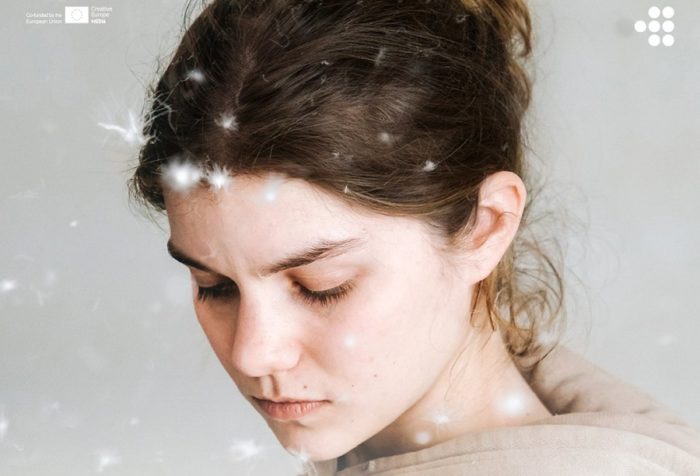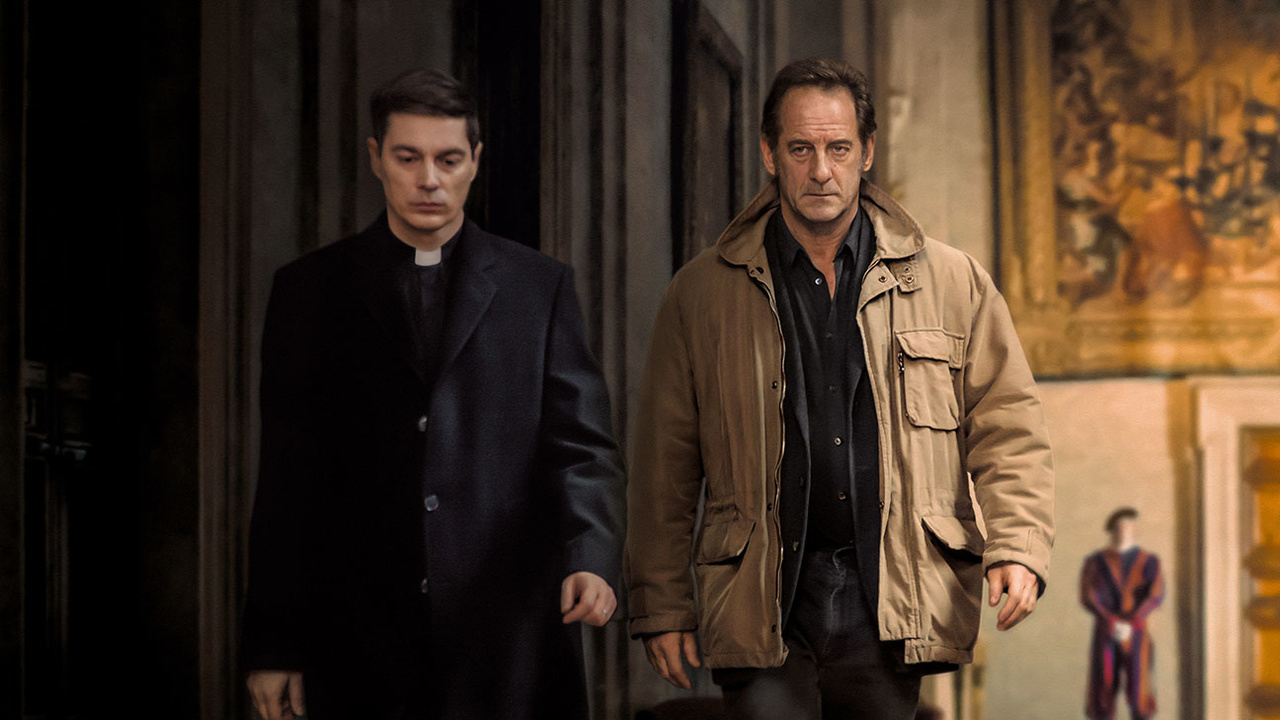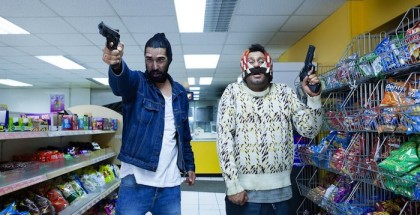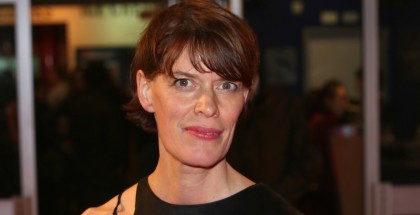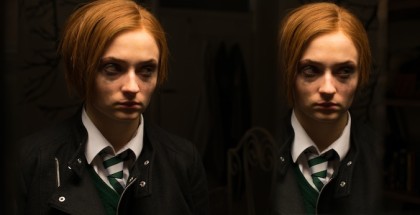Interview: Xavier Giannoli talks MUBI’s The Apparition
Josh Slater-Williams | On 03, Aug 2018
From the director of Marguerite and The Singer, The Apparition is a French drama concerning a journalist (Vincent Lindon) being hired by the Vatican to assist with a canonical investigation into a young woman (Galatéa Bellugi) in a small French village, who claims to have been visited by the Virgin Mary.
With MUBI now releasing The Apparition in British cinemas and on their service at a later date, we spoke to writer-director Xavier Giannoli about his procedural drama just before the film’s British premiere at the Edinburgh International Film Festival.
What would you say The Apparition is about?
That’s such a difficult question. I think I’m making the film to understand what exactly it’s about and then working a lot and making a lot of investigation, and meeting a lot of people to write the film. And I still don’t know exactly what the film is about. I think that I’ve done this film because I was feeling that, at this moment when I was writing the film, we are living in the world of lies, not only because of the ‘fake news’, but about the economical lies, the political lies.
I think that we’re lying to ourselves all day long because we are trying to forget that we are going to die. And a lot of my films are talking about lie and illusion and I think that it was important for me to make a film about an investigation. Someone who was trying to know the truth about the mystery and the mystery is a religious mystery: the apparition of the Virgin Mary. And I think that the main question was: what can I believe in? I’m 45 years old and as many people do, I lost some people I loved. I’m a little bit lost in front of this world. And this investigation, for me, was a way to ask this question: what can I believe in about religion, about love, about politics, about what is this modern world? Maybe that’s why I have done this film; to rediscover something about the important questions for me.
“The main question was: what can I believe in?”
Were you careful to maintain a degree of neutrality about reproducing the religious environment in the film?
I wrote the film myself and it was important for me at the beginning that I [not] judge. I don’t want to say to the audience that you have to believe that an apparition of the Virgin Mary is possible. But I don’t want either for you to say no, it’s not possible, I don’t believe. What was interesting for me was to follow the investigation of someone who is fair. He’s a journalist, he’s a war journalist, and he’s a nice man and he just wants to understand and he just wants something about truth. He’s meeting this young girl, she’s 18 years old and she’s pretending that she sees an apparition of the Virgin Mary. And he just wants to understand if she’s lying; he wants to have the proof that she’s lying. And maybe she’s not lying, but his heart and his mind are open. I started the film by writing this dialogue where a bishop says to my investigator, to my journalist, they say the church will always prefer to put out a real story than to believe in a fake story.
There’s this grace to the film’s camerawork even in scenes of quite ordinary situations. Could you share a bit about what went into the choices with the cinematography?
I worked with a very famous French DoP, his name is Eric Gautier. He [shot] Into the Wild, for example. And what I liked in the relationship he has with the camera is that in front of an actor like Vincent Lindon, there is something very concrete. There is something about truth, about reality. And as a director, I think that it was very important to tell this story about a crazy mystery with the camera [as though] it’s almost documentary. I want the audience to feel that everything in the film is like a real canonical investigation. But it’s not enough, because I’m not a documentary director. So, for me, what I wanted was something poetic about the mystery of cinema; about the mystery of what an image is. It is that which you can see and what you can believe in and what you can’t see, so it’s very close to what an apparition is. So cinema is in the middle of the subject of the film. Something about image, something about what we don’t see, something about what we can believe in when we’re seeing something, something we can imagine. I think that all this was in the film, in one way or another.
And I don’t like this modern cinema where it’s a handheld camera and the actors pretend they are not actors and all that. No, I don’t like this kind of trick. I want something simpler and, I hope, more poetic. I want to see the bodies of the actors. I want to see the eyes of the actors. I want the camera to be there, not to judge them, but to express the mystery of the story. And I want them to give the audience the feeling that everything is real. I don’t want the mystery to be a gothic cliché where she’s a relation of God, like with The Da Vinci Code. That was my nightmare! So it’s exactly the opposite. It’s very technical, very concrete. He’s asking questions, he’s a journalist and he wants answers. The problem is that he wants answers about questions that don’t need answers.
“There is something religious when cinema is about beauty and about what a human being is.”
Was Vincent Lindon always the first choice for the part?
Of course, I wrote it for him. I knew him for many years and we wanted to make a film together. Have you met him? In life, he’s someone always moving and when he’s watching you, he wants to immediately feel if you are a liar or not, if you are real or not. So I think that there is something in his presence that was perfect for the part. It was the guy who wants to understand if people are lying or not, and during the film is going to be completely lost. And that’s why it was so interesting to have Vincent, because at the beginning, he’s someone saying I want proof, I want something real. But he’s in front of people who believe in mystery. So this tension was the issue for me.
Do you have any personal favourite films that deal with religious doubt and crisis?
There are many beautiful films by Dreyer and Sous le Soleil de Satan, the film by Maurice Pialat, and all these kinds of films. But the idea for me writing this film was it’s not a religious film, it’s an investigation. I believe in God and I can feel something. For me, it was kind of a Christian coming out, because a lot of my films are talking about this. The title of a previous one was In the Beginning – that’s the beginning of the Bible. Something about life, something about human truth was, I hope, in all my films. And suddenly, I decided to talk directly; to do a film about questions of religion.
When I’m watching Francis Ford Coppola’s The Godfather, I can see people struggling with God… not only because of ‘God-father’. When you are watching a film, there is something mystical. It could be any film, when there is something about beauty; when there is something about more than reality; when there is something in a film that is trying to understand what a human being is; what we can believe in today in this crazy fucking world; about the failure of a morality, of all that. I turned 45, so maybe now, I’m thinking about these questions, about death and all that. So for me, it’s not very interesting to say this specific film of Dreyer, of Bresson. No, there is something I can feel in many films. When I’m watching a Tarkovsky film, for example, I can feel something mystical. When I’m watching Coppola’s Apocalypse Now, when I’m watching Magnolia, the Paul Thomas Anderson film… I love this film, but at the end when there’s all the frogs, that’s in the Bible. So I think that there is something religious when cinema is about beauty and about what a human being is.


